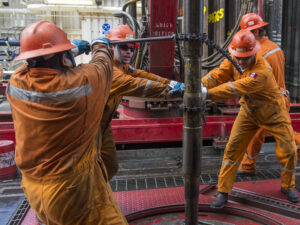- Demo Tester Page-OMCT
- dxecfc
- VIEW ALL- TESTER PAGE
- TECHNOLGY-TESTER PAGE
- TRAINING-TESTER PAGE
- CONUSLTING-TESTER PAGE
- UI XI Design Software-tester
- Game App Development-tester
- Mobile App Development-tester
- Data Management Service-tester
- Website Development-tester
- API Development Services-tester
- demo-tester-page-AR
- ui-xi-design-software-tester-AR
- game-app-development-tester-AR
- mobile-app-development-tester-AR
- data-management-service-tester-AR
- website-development-tester-AR
- api-development-services-tester-AR
- Payment Terms & Conditions
- Home Page
- Contacts
- Blog
- About Us
- Typography
- Blocks
- Home Page – English
OrientMCT
Drilling Engineering Training
A drilling engineering course is designed to provide individuals with a comprehensive understanding of the principles, techniques, and practices involved in drilling operations in the oil and gas industry. It covers a wide range of topics related to planning, designing, and executing drilling projects, with a focus on efficiency, safety, and well integrity.
Here are some key areas typically covered in a drilling engineering course:
Introduction to Drilling Engineering: An overview of the role and importance of drilling engineering in the oil and gas industry. This section introduces the drilling process, drilling systems, and the various components and equipment used in drilling operations.
Well Planning and Design: The course covers the planning and design aspects of drilling wells. It includes topics such as wellbore trajectory selection, well control considerations, casing design, drilling fluid selection, and well control measures. Participants learn how to develop drilling programs and make decisions based on well objectives and geological conditions.
Drilling Fluids: This section focuses on the properties and functions of drilling fluids, also known as mud. Participants learn about the types of drilling fluids, their rheological properties, and how to select the appropriate fluid for different drilling conditions. The course also covers the management of drilling fluids on the rig and the importance of maintaining fluid properties.
Drill Bits and Drillstring Design: Participants gain knowledge of various drill bit types, their applications, and the factors affecting their selection. The course also covers drillstring design considerations, including drill pipe selection, bottom hole assembly (BHA) design, and drillstring mechanics.
Well Control and Blowout Prevention: This section emphasizes well control principles, kick detection, and blowout prevention measures. Participants learn about pressure control equipment, including blowout preventers (BOPs), well control techniques, and contingency planning in case of well control incidents.
Directional Drilling: The course introduces the fundamentals of directional drilling, including wellbore trajectory design, surveying methods, downhole motors, and rotary steerable systems. Participants learn about the tools and techniques used for directional drilling and the importance of accurate well placement.
Formation Evaluation: This section covers techniques for evaluating formations encountered while drilling. Participants learn about logging methods, formation testing, and well logging interpretation. The course also introduces the use of measurements while drilling (MWD) and logging while drilling (LWD) technologies.
Wellbore Stability and Formation Damage: Participants learn about the challenges associated with wellbore stability and formation damage during drilling operations. Topics include drilling-induced fractures, wellbore stability analysis, and mitigating formation damage through proper drilling fluid selection and wellbore strengthening techniques.
Drilling Operations and Rig Equipment: This section provides an overview of drilling rig equipment, rig systems, and drilling operations. Participants learn about rig components, rig personnel roles, drilling rig types, and the functions of drilling equipment such as hoisting systems, rotary systems, and well control systems.
Health, Safety, and Environmental Considerations: The course emphasizes the importance of health, safety, and environmental practices in drilling operations. Participants learn about risk management, hazard identification, personal safety, and environmental regulations applicable to drilling activities.
Drilling engineering courses often incorporate practical exercises, case studies, and simulation software to provide participants with hands-on experience and practical problem-solving skills. These courses are beneficial for drilling engineers, wellsite supervisors, drilling contractors, and professionals involved in drilling operations who seek to enhance their knowledge and skills in drilling engineering principles and practices.

Get In Touch!
Contact us for a quote or in case of any urgent queries please send us an email on: [email protected]
we will get back to you right away!